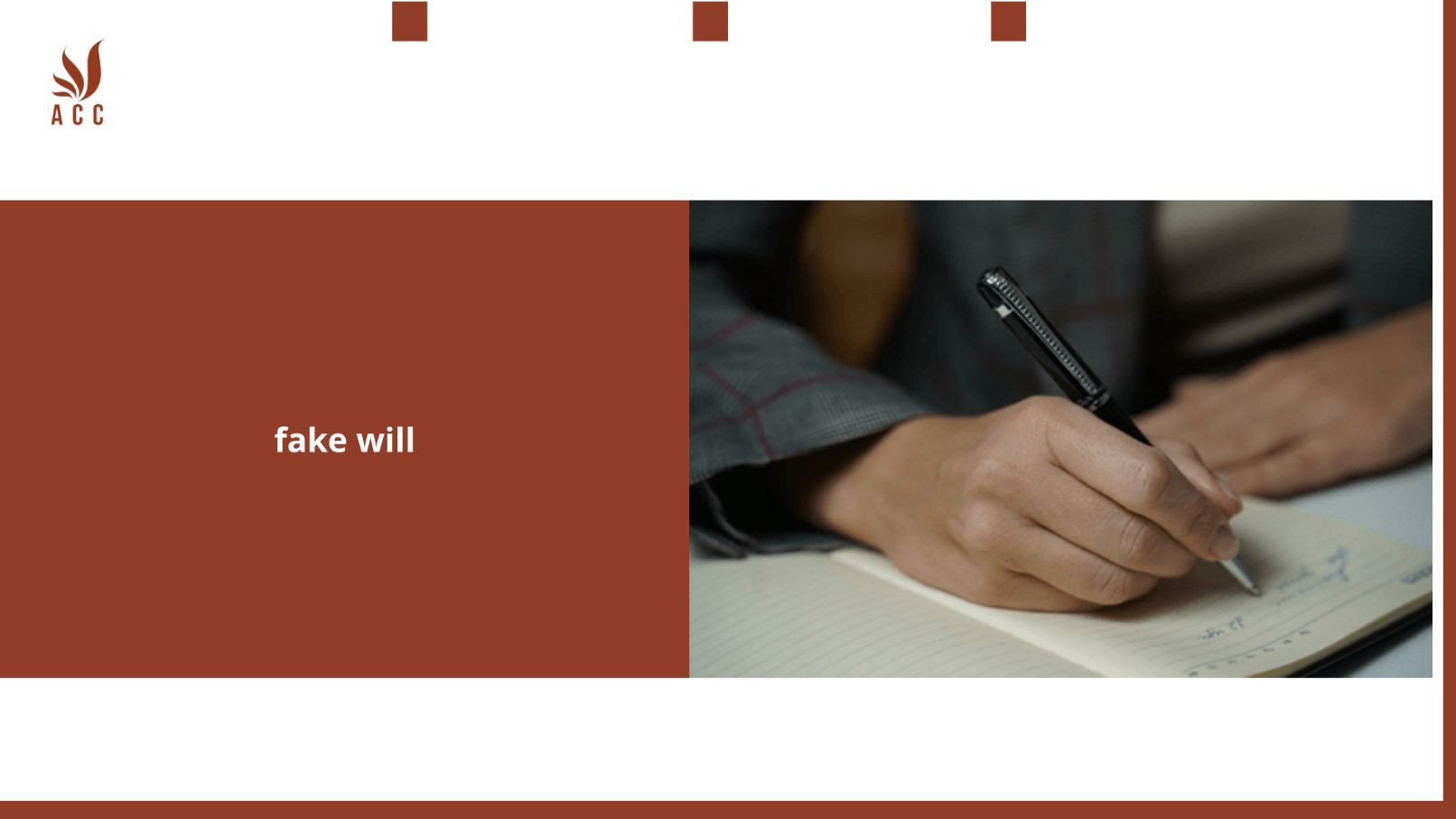I. Fake will
A "fake will" refers to a fraudulent or counterfeit last will and testament, which is a serious legal issue. Creating or using a fake will is illegal and unethical, and it can result in serious consequences, including criminal charges and civil penalties.

Common reasons for creating a fake will might include attempting to gain control of someone's assets or property, forging the deceased person's signature, or falsely naming oneself as a beneficiary.
If you suspect the existence of a fake will or are involved in a situation where the authenticity of a will is in question, it is essential to consult with legal authorities, such as an attorney or law enforcement, to investigate the matter thoroughly. Legal professionals can help determine the legitimacy of the will and take appropriate action if fraud is involved.
The creation or use of a fake will undermines the legal and ethical principles that underlie the process of distributing a deceased person's assets according to their genuine wishes, and it is taken very seriously under the law.
II. When using ACC Law Firm's testament, entrepreneurs will receive
When using ACC Law Firm's testament, entrepreneurs will receive professional legal advice and assistance in drafting a comprehensive and legally binding will that reflects their specific business needs and objectives. The testament will ensure the smooth transition of their business assets and help protect their interests and those of their beneficiaries. Additionally, entrepreneurs will have access to ongoing support and guidance from experienced attorneys who specialize in estate planning for entrepreneurs.
III. Q&A
Q: What is a fake will, and how does it differ from a genuine will?
A: A fake will, also known as a fraudulent will, is a document that purports to be a person's last will and testament but is not genuinely created or authorized by the deceased. It differs from a genuine will, which reflects the true intentions and wishes of the testator (the person making the will).
Q: What are some common signs or red flags that may indicate a will is fake?
A: Common signs of a fake will can include inconsistent handwriting, questionable witnesses, suspicious alterations or amendments, and unusual bequests that don't align with the testator's known wishes or relationships.
Q: What legal consequences can result from creating or using a fake will?
A: Creating or using a fake will can have serious legal consequences, including criminal charges such as forgery or fraud. It can also lead to the invalidation of the fraudulent will, potentially resulting in the distribution of assets according to the laws of intestacy (when there is no valid will).
Q: How can one prevent or address suspicions of a fake will when it is discovered?
A: If suspicions arise regarding the authenticity of a will, it's crucial to consult with an attorney who specializes in estate law. Legal professionals can investigate and, if necessary, take legal action to challenge the validity of the will in question. Courts have processes in place to address disputes over the authenticity of wills and ensure that the true intentions of the deceased are respected.
Nội dung bài viết:






Bình luận